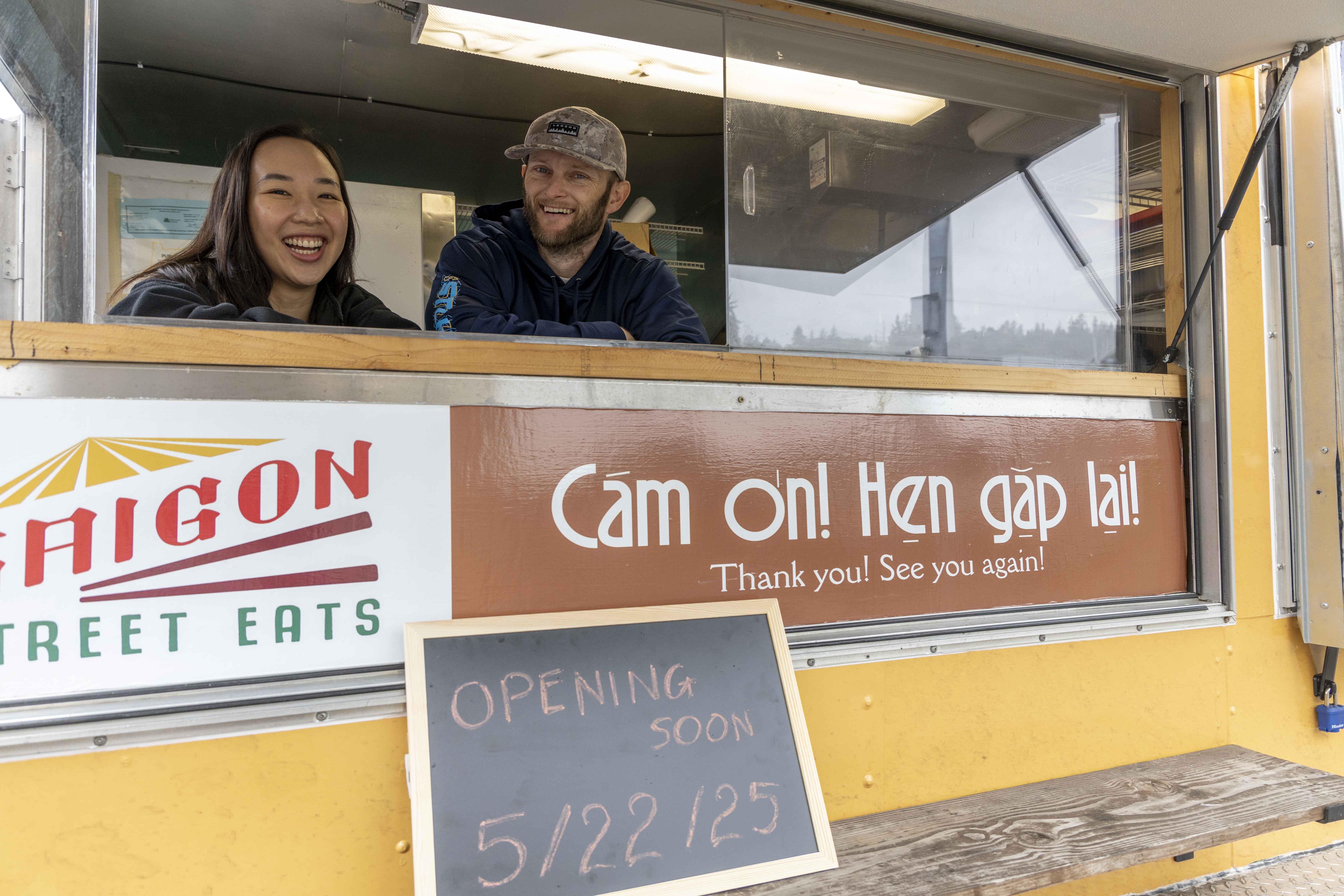Long Beach go-kart case ends in guilty pleas
Published 5:31 am Wednesday, May 2, 2018

- Robert ‘Tony' Merrill pleaded guilty to 10 felonies last week.
SOUTH BEND, Wash. — Former go-kart operator Tony Merrill has pleaded guilty to 10 felonies in Pacific County Superior Court.
When he is sentenced in August, he is likely to spend a minimum of six years in state prison for selling drugs at his downtown Long Beach entertainment complex, and for purchasing guns stolen from an Ocean Park home.
His conviction brings to a close an investigation into a drug-dealing amusement park that ended up involving a fugitive-hunt in Mexico and the discovery of a local gun-fencing ring.
“We are proud to see this case end up with 10 people going to prison and out of our community and to see the changes that have already taken place, specifically the new ownership and reopening of the (Long Beach Go-Kart track),” County Prosecutor Mark McClain said.
After months of making undercover drug buys, Long Beach police officers and Pacific County deputies raided Merrill’s go-kart business and home last April, with help from other local agencies. Merrill, his girlfriend, Doreen Morris, and a roommate were arrested on drug-related charges.
A new volley of charges in a separate criminal case followed several weeks later, when investigators learned Merrill had also purchased numerous stolen guns. That led to the discovery of still more suspects, who were using a local storage facility to hide the stolen firearms.
“This was bad,” McClain said. “It was certainly making the criminal wheel go round and round.”
The matter became more complicated still when Merrill fled to Cabo San Lucas after making bail. He hid there until Mexican federal police caught him in late October and returned him to the United States.
Recently-filed court documents reveal that Merrill’s May 2017 escape to Mexico was financially and emotionally devastating for his parents. In affidavits, the couple said they did not understand the extent of their son’s drug addiction until he ran away, leaving them owing $250,000 for his forfeited bond to A-Affordable Bail Bonds. Merrill’s stint as a fugitive also put his terminally ill brother in danger of losing the specialized care he requires.
The elder Merrills retired from running several tourism-oriented businesses 11 years ago. They did so believing they would be financially secure and able to help pay for their eldest son’s care.
Merrill’s addiction changed all that.
After his April 2017 arrest, the couple paid the bail bond company a $25,000 premium, plus about $2,000 in fees, using their home as collateral. According to the documents, they quickly realized their son was “ravaged” by addiction, and began to regret their decision.
“As soon as I fully understood I could not assure my son’s appearance in court, it was too late,” Robert Merrill said. “My son was gone.”
Tony Merrill fled to Mexico. He called his mother every other week, always from a different phone, and refused to tell her where he was hiding.
“We implored him to return to us, since making the payment could cripple us financially,” Robert Merrill said.
The fugitive Merrill told them he was trying to get clean, and promised to return. He didn’t. To make the payment to the court, the couple had to liquidate all of their stocks and borrow money from their youngest daughter, the owner of a small hotel in Oregon. They worked closely with the bail bond company and did their best to persuade their son to come home, knowing that if he stayed gone for more than 12 months, they’d lose every penny.
In the fall, he told his parents he was soon going to return to Washington state and turn himself in. They believed him, but he was still in Cabo on Oct. 24, when the federales apprehended him while picking up money at a Western Union outlet.
When he was back in Pacific County Jail, Merrill had a second bond hearing. Citing clear evidence that Merrill was a flight risk, prosecutors asked for a steep bail. The judge set it at $800,000. And though Tony Merrill’s attorney said his parents weren’t going to bail him out again, they did.
“I believe in my son so very much that despite the horrible dilemma my son has placed us in, we posted the new bond in the amount of $800,000. Now we are cash-poor,” Robert Merrill said. The couple took out a loan to pay the $80,000 premium, using a Long Beach property as collateral, and had a lien put on their Vancouver home to cover the rest of the cost.
“This experience has drained our retirement funds and diminished our ability to care for our eldest,” Merrill said. He asked the court to return all but the money needed to cover the costs of extraditing his son from Mexico — an estimated $25,000.
So far, Merrill is sticking around. While waiting for his August sentencing hearing, he is staying with his parents, and wearing an electronic monitoring bracelet that will immediately notify authorities if he decides to make another run for the border.
His parents say he’s doing everything he can to make it right.
Merrill agreed to plead guilty to residential burglary, first-degree trafficking in stolen property, rendering criminal assistance, second-degree unlawful possession of a firearm, bail-jumping, use of a building for drug purposes and four counts of delivery of heroin. The plea resolves both criminal cases.
Initially, he was charged with 48 separate counts of stolen gun possession. Had his cases gone to trial, it might have taken as long as a month to try both, Deputy Prosecutor Don Richter said on Friday. Prosecutors would have had to prove each gun charge separately. The case would have likely involved numerous witnesses, some of whom might have been difficult to track down, police officers from several agencies and a visiting judge from another county. Making a plea deal likely saved the county significant time and expense, while guaranteeing Merrill spends several years in jail, Richter and McClain said.
They praised the cooperative effort between police agencies, saying their work shut down a significant drug dealing operation and kept stolen guns out of the wrong hands. McClain said sheriff’s deputy Ryan Tully’s “dogged pursuit” led to the discovery of the drug-fencing operation.
“The tenacity of Deputy Tully in this case can’t be understated,” McClain said.





